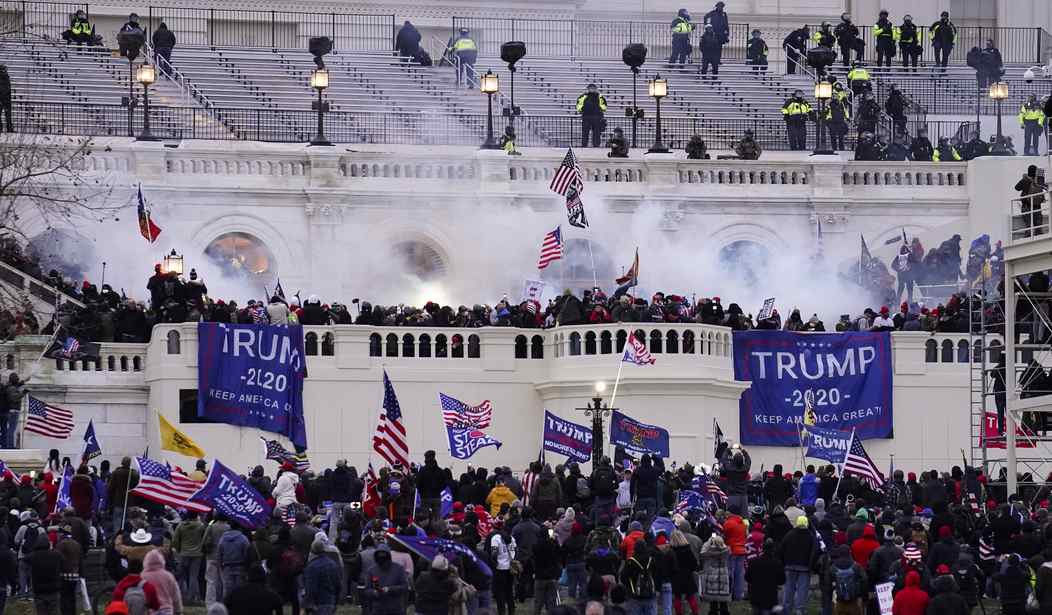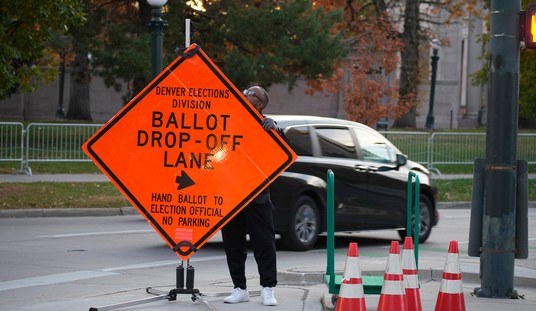The Supreme Court has scheduled oral arguments in the case of Fischer v. United States on April 16. The case could lead to the dismissal of charges against hundreds of January 6 rioters and perhaps even help Donald Trump's criminal case regarding election interference that is being prosecuted by Jack Smith.
The nub of the matter relates to Title 18 of the U.S. Criminal Code, Section 1512(c)(2), regarding the obstruction of justice/Congress charge. Joseph Fischer, a former Pennsylvania police officer, recorded himself charging into the Capitol building. He was eventually charged with "obstruction of law enforcement during civil disorder, knowingly entering or remaining in any restricted building or grounds without lawful authority, violent entry, and disorderly conduct on Capitol grounds" and the aforementioned obstruction of justice/Congress charge.
Section 1512(c)(2) states “whoever corruptly alters, destroys, mutilates or conceals a record, document or other object, or attempts to do so, with the intent to impair the object’s integrity or availability for use in an official proceeding; otherwise obstructs, influences, or impedes any official proceeding or attempts to do so, shall be fined under this title or imprisoned not more than 20 years, or both.”
The language is critical. Did Fischer and other January 6 defendants "corruptly" carry out acts that interfered with Congress?
Broadly interpreted, the answer is almost certainly "yes," as the more than 1,200 defendants in January 6 cases have discovered. But a narrower interpretation would be very problematic for prosecutors. And while it wouldn't free Mr. Fischer because of other charges he is facing, it could certainly wreak havoc in hundreds of other cases either yet to be tried or appealed.
What exactly doers "corruptly," as far a the law, mean Fischer went before a lower court of appeals where his legal theory was rejected. But his lawyers and many other attorneys representing January 6 rioters claim that the prosecutors lack proof that the rioters acted "corruptly."
They contend it was used by prosecutors as an overly broad catchall and that proving whether a rioter had “corrupt” intent is a bridge too far because it would also mean that prosecutors have to prove that a defendant knew they weren’t just obstructing the certification in the general protest sense but doing so because they believed their protest was to stop a stolen election.
When the case was first up for consideration to the Supreme Court, prosecutors argued that the corruption element was proven in Fischer’s conduct on Jan. 6 because his conduct actively prevented government officials from “accessing and counting the certificates of electoral votes as the Electoral Count Act requires.”
Related: You're Not Going to Believe the Reason the Alleged Super Bowl Shooter Gave for Opening Fire
According to the Department of Justice, more than 300 January 6 defendants have been charged with the obstruction statute. And for Donald Trump, two of the four criminal charges against him relating to election interference could be tossed — throwing a monkey wrench into the entire case.
If the Supreme Court issues a ruling that interprets the statute as Fischer says it should be interpreted, it would have the potential to upend at least two of the four charges brought against Trump by special counsel Jack Smith. It would hobble the case in myriad ways but chief among them, it would be harder for Smith to argue that Trump’s obstruction and the violence at the Capitol went hand-in-hand.
"We will, of course, argue for a narrow construction of Section 1512(c)(2) consistent with its language and Congress' expressed purpose in enacting it," Fritz Ulrich, a federal public defender representing Fischer, told Newsweek via email on Friday.
"As far as the effect on the other January 6 cases that have a Section 1512(c)(2) count, nothing will happen at the argument that would affect them," Ulrich added. "But we may be able to discern how some of the justices view the statutory language at issue."
So no, the other cases wouldn't automatically be dismissed or the charges reduced. But with an affirmative Supreme Court decision on Section 1512(c)(2), a January 6 defendant going before an appeals judge would find a much more receptive audience for his case.










